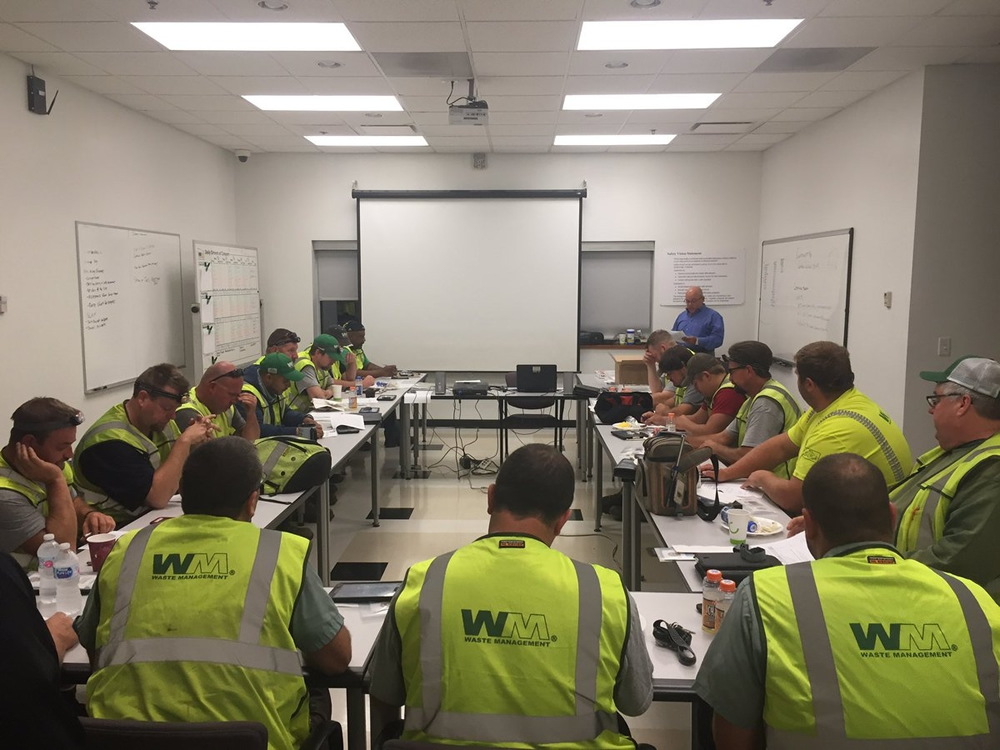Helping Keep a City Clean, and Maybe Safer
ROSEVILLE, Calif. — Gary Garcia probably knows the early-morning rhythms of the streets here in this city just north of Sacramento better than anyone besides his fellow garbage truck drivers. Anything that breaks the morning pattern is obvious to them, which makes it easy for the garbage collectors to perform an added job — eyes for the police.

“See, here’s an odd vehicle here,” Mr. Garcia said, gesturing toward a red Ford sedan parked by itself, far from the nearest house, on a street where every other vehicle sat neatly in a driveway. He drove by slowly, peering down into the car but seeing nothing on the seats. “It’s an odd place to be parked.”
It is a low-tech approach to surveillance, relying not on satellite cameras, space-age radiation detection devices or even neighborhood Webcams. In more and more towns, drivers and garbage collectors are helping the police keep up with what is happening on the streets.
Some of the nation’s biggest waste collection companies, including Waste Management and Republic Services, have been participating in the program for several years, allowing police departments to train their workers on what to look for.
The program is now operating in 96 municipalities nationwide, including Londonderry, N.H.; Salt Lake City; Denver; and Fort Worth. “The program has really, I would say, caught fire in the last couple of years,” said Zachary T. Lowe, a former F.B.I. agent who was an early proponent of the program as vice president and chief security officer at Waste Management. “We have not advertised it.”
The company’s “Waste Watch” program suggested the idea to officials of Roseville, whose garbage collectors are municipal employees. Local police officers trained the drivers, who are not paid extra for participating, last summer.
Most mornings, Mr. Garcia says, are loud — as his big truck rumbles to the curb, and its mechanical arm picks up, empties and repositions 90-pound plastic trash bins — and predictable. Once in a while, though, he spots something that seems out of place — that red car near Bill Santucci Park, for example, or on another day a man walking aimlessly at 7 a.m. in a neighborhood that rarely has foot traffic.
About once a month, Mr. Garcia says, he sees something unusual enough to merit a call to a special police number.
Police officers say they appreciate the drivers’ tips, especially as budgets shrink. Over the last two years in Roseville, the police department has left 10 positions unfilled. Having the garbage trucks on patrol may not take the place of a police car, but it helps.
“It’s a huge benefit for us,” said Lt. Michael Doane, watch commander for the Roseville police. “Obviously we’re not increasing law enforcement staff right now, because of budget issues.”
Lieutenant Doane recalled a tip from a driver who had spotted a man walking down a street, peering into parked cars. “We went out and investigated, and sure enough the person had done some auto burglaries,” he said.
Apparently the man never noticed the passing garbage truck, Lieutenant Doane added. “Everybody is used to seeing garbage trucks and public street workers and electric meter readers out every day,” he said. “Nobody pays any attention to them.”
Drivers are told not to intervene when they see something suspicious, said Aric Henschen, general manager for Republic Services in Aurora, Ill. They are asked instead to “make sure you get a license plate number, try to get as much physical information as you can.”
Drivers’ tips have led to drug-trafficking arrests, Mr. Henschen said, and to the discovery of a corpse in a home that had gone so long without having any trash that a driver grew suspicious.
Toby August, a senior driver in Roseville, said he often reported people he suspected of being drunken drivers. “Three guys got in a Jeep, all with beers, the driver talking on a cellphone,” he said. “I called that one in.”
Riding high in the cab of a garbage truck, it is impossible not to notice things. Signs of family life are evident in trash: a birth is announced by a crib’s big cardboard box, the aging of children shown in the abandonment of a kiddie pool. Garbage collectors are also informal, hands-on economists, Mr. Garcia said, explaining that when times are good, everyone produces more garbage and that the absence of trash is often a sign of a foreclosed home.
“You can tell how well a particular restaurant is doing from the amount of trash,” he said.
Having a recognized, official reason to notice and analyze is a source of pride, Mr. Garcia said, something that helps make up for the obscene gestures and angry honks from impatient drivers trying to pass his truck.
“They have no idea what we do,” he said.